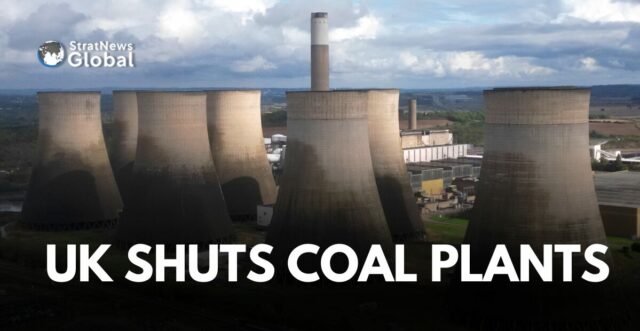Britain will become the first G7 country to end coal-fired power production on Monday with the closure of its last plant, Uniper’s Ratcliffe-on-Soar in England’s Midlands.
It will end over 140 years of coal power in Britain.
In 2015 Britain announced plans to close such fossil fuel plants within the next decade as part of wider measures to reach its climate targets. At that time almost 30% of the country’s electricity came from coal but this had fallen to just over 1% last year.
Drop In Coal Power
“The UK has proven that it is possible to phase out coalpower at unprecedented speed,” said Julia Skorupska, Head of the Powering Past Coal Alliance secretariat, a group of around 60 national governments seeking to end coal power.
The drop in coal power has helped cut Britain’s greenhouse gas emissions, which have more than halved since 1990.
Britain, which has a target to reach net zero emissions by 2050, also plans to decarbonise the electricity sector by 2030, a move which will require a rapid ramp-up in renewable power such as wind and solar.
“The era of coal might be ending, but a new age of good energy jobs for our country is just beginning,” energy minister Michael Shanks said in an emailed statement.
Reducing Emissions
Emissions from energy make up around three quarters of total greenhouse gas emissions and scientists have said that the use of fossil fuels must be curbed to meet goals set under the Paris climate agreement.
In April the G7 major industrialised countries agreed to scrap coal power in the first half of the next decade. However, it also gave some leeway to economies who are heavily coal-reliant, drawing criticism from green groups.
“There is a lot of work to do to ensure that both the 2035 target is met and brought forward to 2030, particularly in Japan, the U.S., and Germany,” said Christine Shearer, Research Analyst, Global Energy Monitor .
Coal power still makes up more than 25% of Germany’s electricity and more than 30% of Japan’s power.
(with inputs from Reuters)





